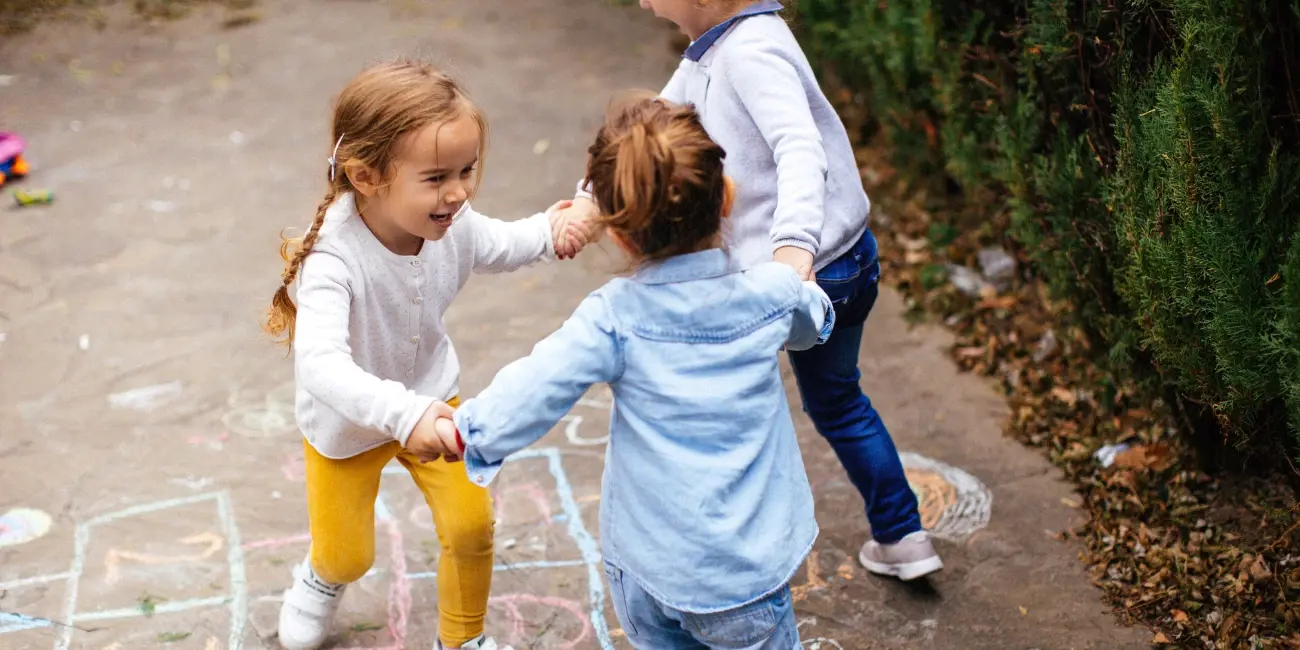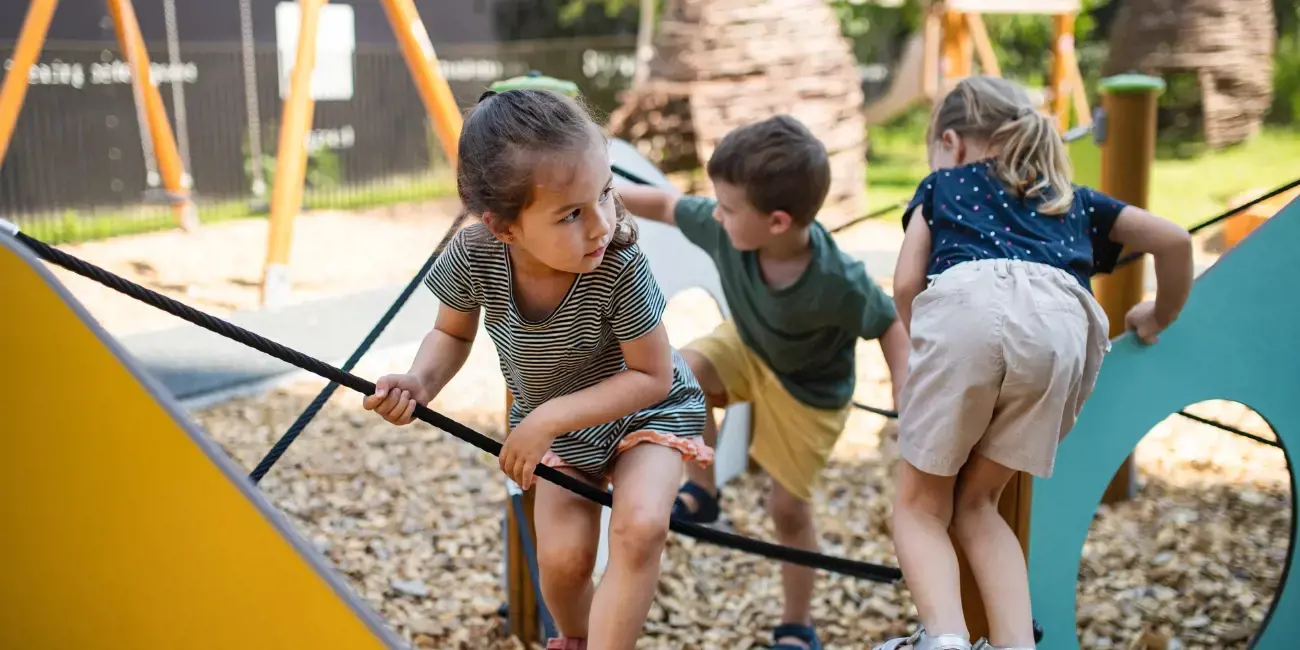As a parent, it might feel like your toddler or preschooler never stops! Under fives are bundles of enthusiasm and energy, but according to research by the Telethon Kids Institute, only a third of children aged two to five are achieving the recommended three or more hours of physical activity per day.
The good news is that there’s an opportunity for littlies to amp up their physical activity while at child care, and to help them do this, the Telethon Kids Institute has developed the Play Active Program.
We spoke with its lead researcher, Associate Professor Hayley Christian, to see how early childhood education and care (ECEC) centres can boost children’s physical activity levels between drop-off and pick-up.
What exactly is the Play Active program?
Play Active is an evidence-based, stakeholder-informed program that gives ECEC centres clear guidance on the amount of physical activity and sedentary time (including screen time) that young children should have whilst attending ECEC.
The program includes a customisable physical activity policy template, and a supporting Resource Guide with practical tips and advice to help ECEC educators incorporate physical activity into everyday practice.
Plus, for the first time ever, there is evidence-based face-to-face and online training to support educators in providing children with the recommended daily physical activity while they’re at ECEC.
This program is currently being rolled out in Perth, Western Australia, and once the researchers have had feedback from services, families and others, it will be available across WA and in other states. ECEC services can register their interest in Play Active here.
Why is Play Active a much-needed approach?
We live in a world where obesity, physical inactivity and recreational screen time is increasing in children. Physical activity provides young children with many health and developmental benefits, including:
- Healthy weight
- Improved bone health
- Cardiovascular and muscle fitness
- Enhanced cognitive, emotional and psychosocial development.

Establishing life-long healthy physical activity habits early in life is critical for a child’s health and development. Yet, many young children do not get the Australian Department of Health’s recommended three or more hours of physical activity each day.
Considering many toddlers and pre-schoolers attend ECEC, these services are an important setting for supporting young children to be physically active, healthy and developmentally on track.
The Play Active program also enables services to be better equipped to meet the Australian National Quality Standards - Quality Area 2.1 which says that, ‘Each child’s health and physical activity is supported and promoted’.
Our research suggests that many early childhood educators aren’t sure what the recommendations around physical activity are, or how to ensure they’re met, and although ECEC physical activity guidelines do exist in Australia, they are the same as the national guidelines and are not specific to the time children spend in care.
We saw a real need for evidence-based guidance, training and support, and that’s what we’re offering through Play Active.
This program is evidence-informed and co-developed with the ECEC sector to ensure young children achieve the recommended daily physical activity while at childcare.
What kinds of physical activity can children engage in at ECEC?
While there are many physical activity resources available, educators should choose structured and/or unstructured physical activities appropriate for children’s age and developmental stage, and tailored to enable all children in the group to participate, including those with disabilities.
Examples of play-based physical activities that can be adapted for different groups of young children include:
| Unstructured Play | Structured Play |
|---|---|
|
|
Young children should experience lots of short, sharp bursts of energetic play throughout the day – activity that makes them huff and puff – as well as light intensity active play and lots of different types of explorative, imaginative active play.
How can parents support early childhood educators to promote more physical activity in their children?
It’s important that parents and educators are committed to engaging in a respectful, child-centred relationship that’s focused on child outcomes.
Many of the strategies for promoting more physical activity in children apply to both ECEC (educators) and the home (parents). These include:
- Talking with children about the importance of physical activity and how children can be physically active in lots of ways spread throughout the day – at home, ECEC and in other settings;
- Providing many daily opportunities for outdoor play time;
- Breaking up long periods of sedentary behaviours;
- Modelling and joining in physical activities with children;
- Communicating and reinforcing positive physical activity experiences between ECEC and home; and
- Providing parents with a copy of the ECEC service’s physical activity policy and an opportunity to review and contribute to the policy.
Three or more hours of physical activity per day helps young children to feel good and develop well, and we’re excited to see care-givers, parents and children embracing the Play Active program in WA and boosting daily physical activity levels around the country.
Further reading
The Department of Health’s Australian 24-Hour Movement Guidelines for the Early Years include recommendations for the amount of physical activity, sedentary time and sleep that zero to five-year olds should have, and you can read the specifics here.



































